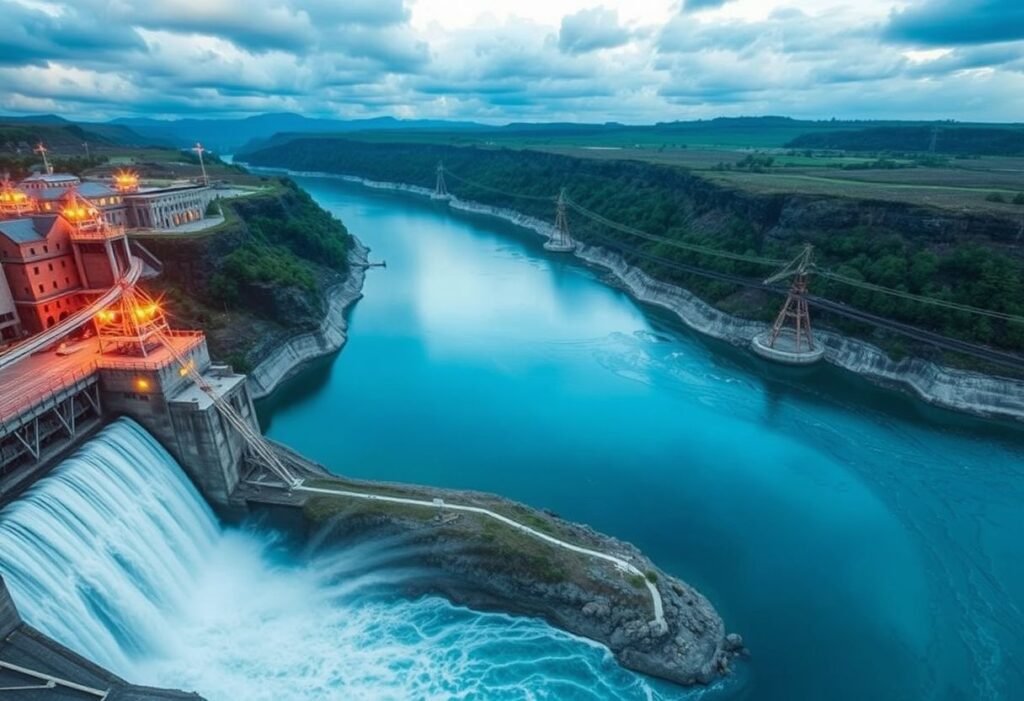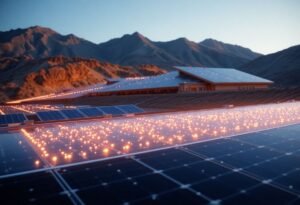The evolution of energy solutions calls for sustainable practices that can address current climate challenges. Hydropower stands at the forefront of innovation, offering a renewable and efficient means to harness nature’s power.
The Role of Hydropower in Sustainable Energy
As the world shifts towards renewable energy, hydropower has emerged as a critical component of sustainable energy solutions. By utilizing flowing water to generate electricity, hydropower minimizes greenhouse gas emissions significantly compared to fossil fuel alternatives. Moreover, it provides a stable energy output, which is essential for meeting the growing demand for electricity in our homes and businesses. The innovations in pump storage technology have further enhanced the efficiency of hydropower plants, allowing them to effectively balance supply and demand. Hydropower contributes not only to energy diversification but also to economic growth through job creation within the renewable energy sector.
Innovations in Hydropower Generation
The advancements in hydropower technology are revolutionizing how energy is produced and consumed. New turbine designs are increasing the efficiency of energy conversion while reducing operational costs. Smart grid technologies allow for better integration of hydropower into existing energy networks, facilitating improved energy management. Additionally, the development of micro and mini-hydropower systems makes it feasible for remote communities to access clean energy. Innovation in this sector ensures that hydropower remains competitive in the broader energy landscape, sustaining its place as a pivotal resource.
Environmental Benefits of Hydropower
Hydropower not only addresses energy needs but also provides numerous environmental benefits that contribute to sustainability. The preservation of aquatic ecosystems is crucial, and modern hydropower projects are designed with ecological considerations in mind. Fish ladders and other enhancements allow for improved fish migration, minimizing the ecological disruption previously associated with dam construction. The use of renewable resources like water significantly lessens the environmental footprint of energy production. This sustainable practice directly enhances biodiversity and promotes healthier aquatic environments.
The Future of Hydropower
The future of hydropower looks promising as innovations continue to emerge. Research into ocean and tidal energy presents exciting possibilities for expanding hydropower capabilities. Furthermore, governments worldwide are increasingly investing in renewable energy infrastructure, which bolsters the hydropower sector’s growth. Adopting innovative technologies such as artificial intelligence to optimize operations and predictive analytics for maintenance can yield significant improvements. These advancements not only enhance operational efficiency but also ensure the longevity of existing hydropower plants.
Challenges Facing the Hydropower Industry
Despite its many advantages, hydropower does face challenges that require innovative solutions. Older hydropower plants must upgrade their facilities to comply with modern environmental standards. Additionally, climate change can affect water availability, leading to concerns about reliability. Finding a balance between water resource management and energy production is crucial. Ongoing research and development efforts are necessary to tackle these challenges head-on, ensuring the resilience of hydropower as a key renewable energy source.
Conclusion: Hydropower as an Innovative Solution
In conclusion, the impact of hydropower on sustainable energy solutions cannot be overstated. As a leader in renewable energy innovation, it provides avenues for environmental sustainability, economic advancement, and energy reliability. Continued investment in hydropower technology offers a pathway to a sustainable energy future, making it an essential part of our global energy strategy. A strong commitment from both the public and private sectors will enable the realization of the full potential of hydropower in the fight against climate change. Innovation in hydropower will pave the way for a cleaner, greener planet.
Disclaimer: The information presented in this article is for informational purposes only. Always consult with professionals before making any energy-related decisions.





















